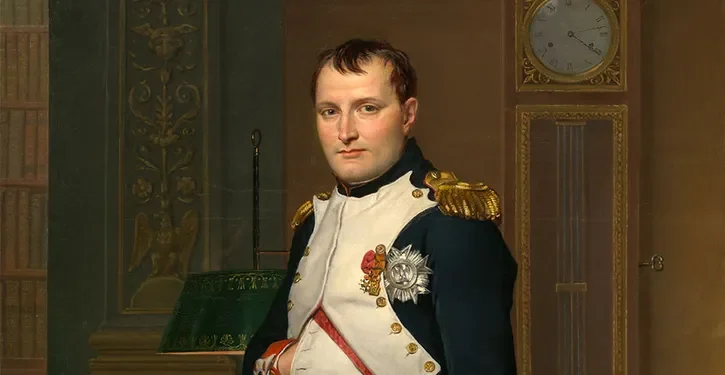In the annals of history, few figures loom as large as Napoleon Bonaparte. His meteoric rise from a Corsican artillery officer to Emperor of the French reshaped the political landscape of Europe in the early 19th century. However, Napoleon’s reign was not without its tumultuous moments, one of the most significant being his abdication in 1814. This event marked the end of his first stint as Emperor and had profound consequences for both France and the wider European continent.
Napoleon’s abdication in 1814 came at a critical juncture in the Napoleonic Wars, a series of conflicts that had engulfed Europe for over a decade. Following a string of military setbacks, including the disastrous French invasion of Russia in 1812 and the defeat at the Battle of Leipzig in 1813, Napoleon’s grip on power began to weaken. As the allied forces, comprising Austria, Prussia, Russia, and the United Kingdom, closed in on Paris, Napoleon faced a stark choice: fight to the bitter end or negotiate for peace.
In the end, pragmatism won out over bravado, and on April 6, 1814, Napoleon signed the Treaty of Fontainebleau, formally abdicating the throne of France. The treaty stipulated his exile to the island of Elba, a relatively mild punishment considering the magnitude of his ambitions. However, Napoleon’s departure from the French political scene set in motion a chain of events that would shape the course of European history for years to come.
The immediate impact of Napoleon’s abdication was felt most acutely in France. With the Emperor gone, the Bourbon monarchy was restored to power in the person of Louis XVIII. The return of the Bourbon dynasty brought with it a sense of stability for some, but for others, particularly those who had rallied to Napoleon’s cause, it represented a betrayal of the ideals of the French Revolution. The years that followed saw a delicate balancing act between the forces of conservatism and liberalism, as France sought to reconcile its revolutionary past with its monarchical present.
Meanwhile, in Europe, Napoleon’s abdication ushered in a brief period of peace, known as the First Restoration. The Congress of Vienna convened to redraw the map of Europe and establish a new balance of power that would hopefully prevent future conflicts. However, the seeds of discord sown by Napoleon’s conquests proved difficult to contain. Nationalist aspirations, simmering beneath the surface, soon erupted into open rebellion in various parts of Europe, leading to renewed conflict and the eventual collapse of the restored order.
Despite his exile to Elba, Napoleon remained a potent symbol of French nationalism and military prowess. His return to France in 1815, known as the Hundred Days, briefly reignited the flames of war before culminating in the fateful Battle of Waterloo and his final abdication. Yet, even in defeat, Napoleon’s legacy endured. His legal and administrative reforms, known collectively as the Napoleonic Code, left an indelible mark on France and many of its former conquests, shaping everything from civil law to education and taxation.
In conclusion, Napoleon’s abdication in 1814 marked the end of an era in French and European history. While his reign had been characterized by ambition, conquest, and conflict, his departure paved the way for a new chapter of peace and reconstruction. Yet, the reverberations of his actions would continue to be felt long after his exile to Elba, shaping the political, social, and cultural landscape of Europe for generations to come. Napoleon may have abdicated the throne, but his impact on the course of history would endure far beyond his lifetime.
newshub



Recent Comments